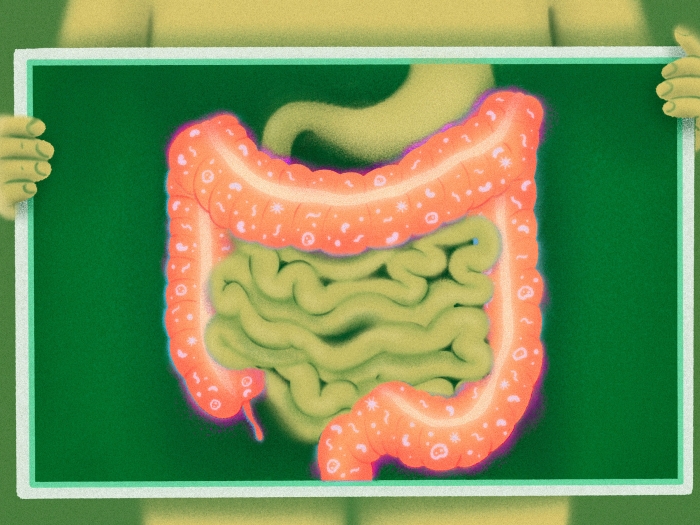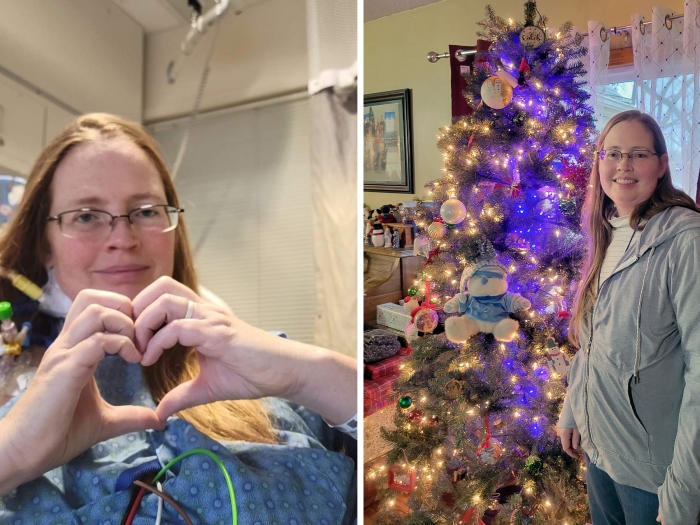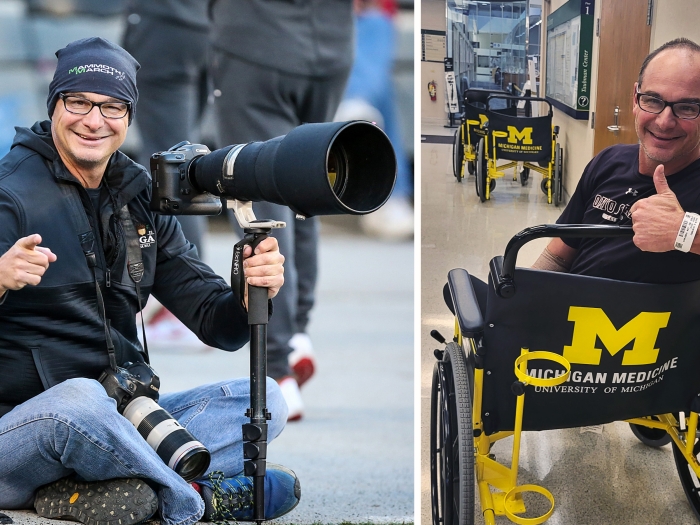Showing 31-45 of 125 results

Health Lab
Researchers and clinicians at the U-M Health Frankel Cardiovascular Center began sending reconditioned pacemakers to low- and middle-income countries for compassionate use cases in 2010 through the “My Heart Your Heart” program.

Health Lab
The Flourish recharge room, an innovative gift given to Michigan Medicine, provides staff with a transformative and healing experience.

Health Lab
Research from Michigan Medicine experts is shedding light and potentially expanding options for patients living with an aggressive childhood cancer.

Health Lab
Researchers at the University of Michigan Health Rogel Cancer Center have identified a mechanism that causes severe gastrointestinal problems with immune-based cancer treatment, also finding a way to deliver immunotherapy’s cancer-killing impact without the unwelcome side effect.

Health Lab
With over 400 stories published on Health Lab in 2023, the following 10 articles were the most read of the year.

Health Lab
Recently approved by the Food and Drug Administration, Pluvicto is a radionuclide-labelled drug administered to patients showing promising results.

Health Lab
At Michigan Medicine, a mother of eight kids underwent a heart transplant surgery through a process called donation after circulatory death, or DCD, which saved her life.

Health Lab
In a study of the three most commonly prescribed blood thinners, the oral anticoagulant rivaroxaban, known by the brand name Xarelto, was associated with a significantly higher risk of bleeding complications than apixaban (brand name Eliquis) and warfarin for patients with blood clots or atrial fibrillation.

Health Lab
An Ohio-based sports photographer is recovering safely at home — and feeling somewhat victorious, despite the Buckeye loss — after having a heart attack at the conclusion of the Michigan-Ohio game.

Health Lab
The use of telehealth remains high, with over 20% of American adults taking appointments online. These visits include video calls with registered dietitian nutritionists, who have a critical role in helping patients take on lifestyle changes through medical nutrition therapy. With a focus on the changing digital landscape, researchers at Michigan Medicine found that telemedicine patients with hyperlipidemia — an excess of cholesterol or fats in the blood — experienced similar positive health benefits compared to those who had in-person visits.

Health Lab
A Michigan Medicine research team developed a prescription wristwatch that continuously monitors the wearer’s heart rhythm and uses a unique algorithm to detect atrial fibrillation. The clinical-grade device, called the Verily Study Watch, proved very accurate at identifying atrial fibrillation in participants.

Health Lab
Pearce, professor of epidemiology at the School of Public Health and co-lead of Rogel’s cancer control and population sciences program, reflects on the project and why bringing this study to Michigan is so critical.

Health Lab
Through a series of experiments in non-human primates, mice and humans, a multi-institutional team led by researchers from Michigan Medicine and Rush University found that the immune protein soluble urokinase plasminogen activator receptor, or suPAR, is an important link between viral infections and proteinuria; the elevation of protein in the urine is known to cause glomerulopathy, a common form of kidney disease.

Health Lab
The holidays are a great time to discuss your family's medical history. Learn the importance of discussing your family's health history & how to bring it up.